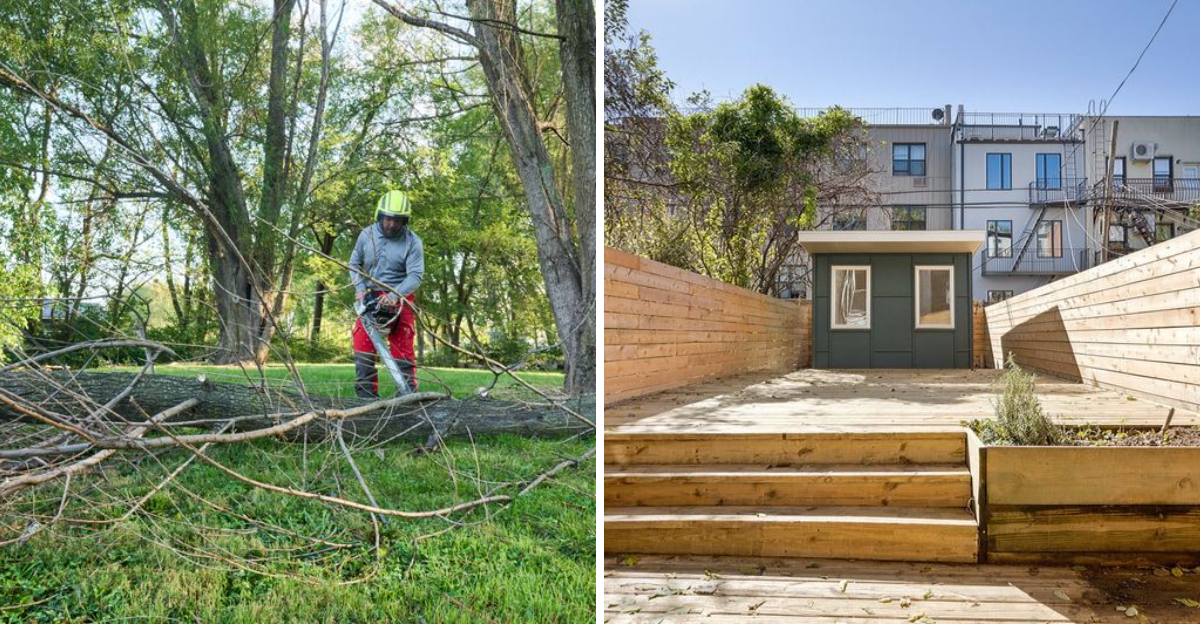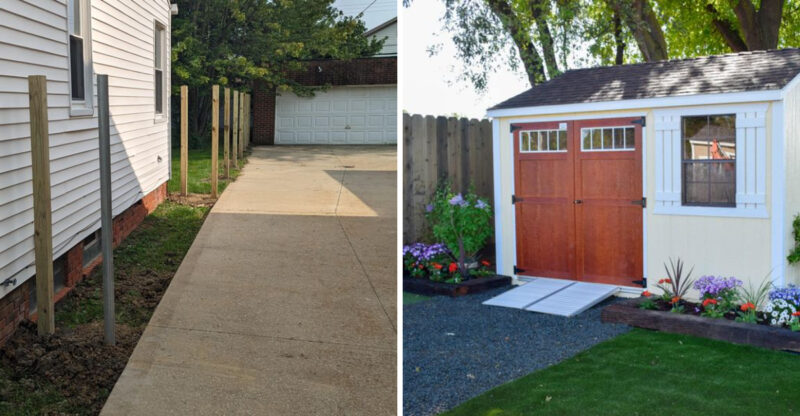DIY Projects That Are Surprisingly Illegal In Some States, From California To Ohio

Ever thought about fixing that outlet yourself or building a backyard shed without calling anyone? Sounds simple enough, right? Well, hold on a second, because some home projects that seem totally harmless could actually land you in hot water with the law.
Rules change wildly depending on where you live, and what flies in one state might be completely banned in another!
1. DIY Electrical Work
Changing out a light switch feels like no big deal, but messing with your home’s electrical system without proper permits is actually illegal in many states. California, Massachusetts, and Oregon have super strict rules requiring licensed electricians for almost any electrical project.
You could face hefty fines or worse if something goes wrong. Electrical fires cause thousands of injuries every year, so authorities take this seriously.
Even simple mistakes like crossing wires can create dangerous situations for your entire household. If you’re caught doing unpermitted electrical work, your homeowner’s insurance might refuse to cover any damage that results from it!
2. Removing Asbestos
Old homes often hide asbestos in insulation, tiles, and popcorn ceilings, making removal seem like a money-saving DIY project. However, disturbing asbestos releases deadly fibers into the air that can cause serious lung diseases decades later.
Most states, including New York, New Jersey, and Illinois, require certified professionals to handle asbestos removal. Getting caught doing it yourself can result in massive fines reaching tens of thousands of dollars.
Your neighbors could also sue you if those dangerous fibers spread to their properties. Always hire licensed contractors who have proper equipment and disposal methods for this hazardous material!
3. Scraping Lead Paint
Houses built before 1978 often have layers of lead paint hiding under newer coats, and scraping it off seems straightforward. Unfortunately, lead dust is incredibly toxic, especially to children and pregnant women, causing brain damage and developmental issues.
States like Massachusetts, Maryland, and Rhode Island have strict laws requiring certified lead professionals for removal projects.
If you scrape lead paint without following proper protocols, you could contaminate your entire home with invisible dust particles. Fines for illegal lead paint removal can reach thousands of dollars per violation. Testing kits are cheap and easy to use before starting any paint project!
4. Installing A Septic System
Rural homeowners sometimes consider installing their own septic systems to save money on expensive contractor fees. But this is illegal in virtually every state without proper permits, inspections, and often licensed installers.
Texas, Florida, and North Carolina have particularly strict septic regulations due to groundwater contamination concerns. A poorly installed septic system can leak sewage into your drinking water and your neighbors’ wells, creating serious health hazards.
You’ll face steep fines and be forced to rip out and replace any non-compliant system at your own expense. Plus, selling your home later becomes nearly impossible without proper septic permits on file!
5. Backyard Burning
Burning leaves, brush, or construction debris in your backyard seems like an easy cleanup solution after big projects. Many states including California, Colorado, and Ohio have banned or heavily restricted open burning due to air quality and fire safety concerns.
Even where it’s technically allowed, you usually need permits and must follow strict guidelines about what you can burn.
Neighbors can report you for illegal burning, leading to fines starting around $500 and climbing much higher for repeat offenses. Wildfires sparked by backyard burns have destroyed entire neighborhoods, so authorities don’t mess around with these violations!
6. Making Fireworks
Creating your own fireworks for celebrations might sound like a fun chemistry project, but it’s seriously illegal in most states. Homemade explosives are incredibly dangerous and unpredictable, causing horrific injuries and property damage every year.
States like New York, Massachusetts, and Delaware have strict laws against manufacturing any type of fireworks without federal licenses.
Getting caught making fireworks can result in felony charges, not just fines, since you’re essentially creating explosive devices. Even possessing the materials with intent to make fireworks can land you in legal trouble. Leave the pyrotechnics to licensed professionals who know what they’re doing!
7. Tampering With Utility Meters
Some folks think they can outsmart their electric or gas company by slowing down or bypassing their meters to reduce bills. This is not only illegal everywhere in the United States but also incredibly dangerous and considered theft of services.
Utility companies actively look for meter tampering and prosecute offenders aggressively in every state. If caught, you’ll face criminal charges, massive fines, and have to pay back all the stolen utilities plus penalties.
Tampering with gas meters can cause explosions that destroy homes and kill people. Smart meters now make it even easier for companies to detect unusual usage patterns and catch cheaters quickly!
8. Building Decks Or Sheds
Adding a deck or storage shed to your property seems like a weekend project that shouldn’t need government permission. Actually, most cities and states require building permits for structures over a certain size, typically anything larger than 100-200 square feet.
Ohio, California, and Virginia are known for strict enforcement of unpermitted construction. Building without permits can result in fines and being forced to tear down your entire project, even after spending thousands of dollars.
When you eventually sell your home, unpermitted structures will show up in inspections and can ruin the sale completely. Getting proper permits protects you and ensures your structure is safe and up to code!
9. Cutting Down Protected Trees
That big tree blocking your view or dropping leaves everywhere might seem like it’s yours to remove since it’s on your property. Many cities and states protect certain tree species, historic trees, or trees over specific sizes, requiring permits before removal.
California, Florida, and Georgia have particularly strict tree protection ordinances that homeowners often don’t know about. Cutting down a protected tree without permission can result in fines reaching tens of thousands of dollars per tree.
You might also be required to plant multiple replacement trees at your own expense. Always check with your local tree commission or forestry department before removing any large trees!
10. Planting Front Yard Vegetable Gardens
Growing your own food in your front yard sounds eco-friendly and practical, but many cities have ordinances against it. Homeowner associations and local governments in places like Florida, California, and Texas have banned front yard vegetable gardens, claiming they look messy or decrease property values.
These rules seem silly, but they’re legally enforceable through fines and court orders. Some homeowners have fought back successfully, getting laws changed to protect their right to grow food.
Until your city updates its rules, you could face daily fines until you remove your vegetables. Check local ordinances before turning your front lawn into a farm!
11. Installing Composting Toilets
Composting toilets are amazing for off-grid living and water conservation, but they’re illegal or heavily restricted in many states. Health departments in places like Ohio, Massachusetts, and North Carolina prohibit them in residential areas due to sanitation concerns and strict plumbing codes.
Even where they’re technically allowed, you usually need special permits and inspections. Installing one without permission can result in fines and being forced to reconnect to traditional sewage systems at huge expense.
Your home could be declared uninhabitable until you comply with local plumbing codes. If you’re interested in composting toilets, work with your local health department to find legal options first!






